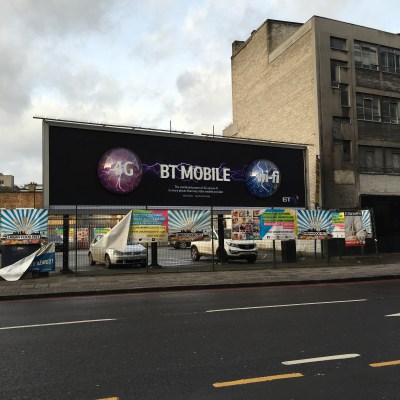A major piece of consolidation in the UK comms network landscape has today been green lit by the Competition and Markets Authority, with the body approving the £12.5 billion ($19BN) acquisition of mobile carrier EE by incumbent telco and broadband provider BT after a 10-month investigation.
BT and EE confirmed they had reached an agreement on an acquisition last February.
For BT, best known for its fixed line telephony, fixed line broadband and pay TV businesses, the merger marks a major return to a prior cellular playbook. The telco was an early player in the U.K.’s mobile telephony market, before going on to spin off its BT Cellnet brand in 2002 — and subsequently sell the business entirely to Spain’s Telefonica for £18 billion in 2005.
The competition watchdog gave the BT-EE merger a provisional thumbs up back in October, saying it did not expect the acquisition to result in a substantial lessening of competition in any market in the UK — owing to minimal overlap between the pair’s areas of strength. It’s now cemented that decision.
“Since our provisional findings, we have taken extra time to consider responses in detail but the evidence does not show that this merger is likely to cause significant harm to competition or the interests of consumers,” said inquiry chair, John Wotton, in a statement.
“The retail mobile services market in the UK is competitive, with 4 main mobile providers and a substantial number of smaller operators. As BT is a smaller operator in mobile, it is unlikely that the merger will have a significant effect. Similarly, EE is only a minor player in retail broadband, so again it is unlikely that the merger will have a significant effect in this market.”
The CMA likewise said it is comfortable with the impact of a BT/EE combined force on backhaul services supply, and wholesale mobile or broadband services, judging that it “would not have both the ability and the incentive to disadvantage competitors such that there would be significant harm to competition”.
Rivals had called for BT to be forced to spin off its broadband infrastructure business, Openreach. The CMA notes there is an ongoing sector review by telecoms watchdog Ofcom — where it suggests “such concerns may have more relevance”.
Welcoming the CMA’s decision in a statement, BT Chief Executive Gavin Patterson pledged “high levels of investment and driving innovation” under the combined BT and EE. “I have no doubt that consumers, businesses and communities will benefit as we combine the power of fibre broadband with the convenience of leading edge mobile services,” he said.
In recent years BT has been stepping up its involvement in mobile, launching a 4G mobile plan for small business customers in mid 2014, piggybacking on EE’s mobile network, followed by moves last year into the consumer mobile space with SIM-only 4G plans for BT broadband customers. BT also acquired 4G spectrum of its own at public auction in 2013.
But buying EE brings it back as a major player in the UK cellular space again. Under its EE, Orange and T-Mobile brands the carrier says it has more than 27 million customers in the UK at this point. It also claims to have the biggest and fastest 4G network, launching before rivals, in October 2012, by repurposing existing spectrum holdings — rather than waiting for additional spectrum to be auctioned.
BT said it expects the deal to close on January 29. Following completion, the EE joint venture’s owners, Deutsche Telekom and Orange, will have twelve per cent of BT shares and four per cent of shares respectively.
It added there will be a distinct EE line of business following completion of the acquisition, led by Marc Allera (who will become EE CEO). However analysts expect BT to rebrand the EE name in time — in line with its recent marketing push around its fledgling ‘BT Mobile’ brand.
Another proposed piece of consolidation in the U.K. mobile market — the Hutchison/Three-O2 acquisition — looks less certain to be green lit by competition regulators. The European Commission announced an in-depth investigation into the proposal at the end of October. It has until March 2016 to make a decision.
Last fall the CMA also made a request to the EC to refer the deal to it for review — citing concerns that merger will “significantly” affect competition in the U.K.’s mobile market. The EC declined to do so but the CMA said it intends to “make representations on the competition impact of the merger in the UK as well as on any potential remedy proposals made by the parties”.
